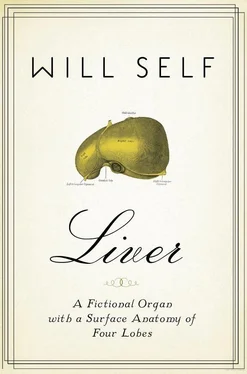She isn’t my friend . Sandra came across the patch of grass, smiling, her arms open for a hug. She’s only the ghost of an old acquaintance . ‘Joyce, what’s the matter — Joyce!’ she cried out, far too loudly for this quiet suburb, especially in the still mid-morning of a weekday.
‘Joyce.’ Sandra fell into step behind Joyce, as she hurried towards Beckmann’s, the convenience store. ‘I’ve come all this way to see you — to talk with you. Miriam told me — ’
Joyce said nothing, silencing her with an angry glare. Told you what? What? That she’d been given her marching orders, too? Those other three had been bad daydreams, mercifully brief, easy to forget, for, although these women had sought her out here, where Joyce lived, the reality was that they’re dead to me. We’ve said our goodbyes . They might just as well have gone to Fluntern, strolled along the cinder path between the box hedges and paid their respects to the waiting niche. These corpses-in-waiting, stinking of the eau de toilette they applied for special journeys, were no more welcome than Isobel, stinking of booze. They all want bloody handouts .
Joyce’s exorcisms of these domestic demons had been short and sharp: ‘I have nothing to say to you’; ‘I don’t care what you’ve heard’; ‘Leave me alone’. No pleases or entreaties; and, while a dispassionate observer — if one such can be imagined — might have expected her visitors to be more persistent, Joyce was so very vehement that, having once recoiled, none of them returned.
Sandra hung on a little longer. She shadowed Joyce to Beck-mann’s, then up and down the short aisles, examining swatches of kitchen cloths and jars of sauerkraut. Was Sandra, Joyce wondered, making the sort of three-way exchange comparisons — from Sterling to Euros to Swiss Francs — that were meat and bread to the bankers downtown? Or were these only nervy displacements ?
Once Joyce had paid — exchanging pidgin weather chat with Frau Beckmann — Sandra came at her again, saying, ‘Joyce, I’m your friend — Isobel called me as well. I — she — we’re both so very worried about you.’ Then she made the mistake of taking Joyce by the arm.
What did the passers-by see? And the lingerers across the road, outside the pensioners’ drop-in centre? An old Englishwoman — crazy, with lank hair — shouting, while grabbing at that nice lady who lives on Saatlenstrasse, the one who moved in a few weeks ago and who, altogether understandably, keeps herself to herself .
The cotton wool cloud of Swiss opprobrium descended on Sandra as Joyce shrugged her off. ‘I’m a doctor, Joyce,’ she protested; ‘I can help you.’ But this was utterly counterproductive; a futile assertion that was her last. She dogged Joyce back to the apartment block, and as they reached the door to the flats Joyce at last spoke: ‘There’s a taxi rank at Schwamendingenplatz, five minutes’ walk that way. But if I were you I’d go the other way, along Tramstrasse to the depot. You can get a tram direct to the airport from there; it’s far cheaper — and quicker.’
Then, having fulfilled her duty of care, Joyce went inside and closed the door firmly in the former paediatrician’s wrinkled and wounded face.
At Sechseläutenplatz there were fat green buds on the upscratching limbs of the lindens along the quayside. The sun was a dull silver disc, while haze lay on the lake. The crowd, being Swiss, struggled to achieve festive incoherence, one bright, primary-coloured jacket slicking against its neighbour. They watched, muttering their appreciation, as the Reitergruppe — the mounted guard of the twenty-six guilds — undertook its ceremonial canter around the bonfire of the B 
 gg .
gg .
Joyce had set out from Oerlikon at lunch-time, intending only to take her usual walk, up along the snaking paths of the Zürichberg to the Fluntern Cemetery. But, on reaching the far side of the woods, she could see ant-people milling across the Quaibrücke, and the flash of the Umzug ’s penants, as the guildsmen, together with their floats, processed through the streets of the old town.
Gravity dragged her down the hill. With all this exercise Joyce’s knees no longer creaked or groaned; she had bought some ski pants at Globus, and the foot straps transformed her legs into exo-tendons, giving extra snap to every stride, as Joyce marched down the Rämistrasse into town, barely breaking sweat.
She ate an apple fritter — hot and sugar-dusted — that she bought from a stall, then wandered among the guildsmen in their cod-medieval costumes. It was somehow predictable that Ueli Weiss would be in quartered hose, half of each leg yellow, half green. His yellow-green belly could be glimpsed between the sides of his leather jerkin, from the slashed sleeves of which escaped puffs of yellow cotton.
Weiss stood, together with a handful of others similarly attired, at the base of the bonfire. These paperbag manufacturers and loss adjusters were fooling nobody with their embroidered banners and velveteen cowpat hats; burst blood vessels, liver-spotted hands, bifocals pinching pitted noses — in the fifteenth century this lot would be long gone . All apart from Weiss, who, as ever, managed to carry it off. His aquatic head bobbed in the surly-burly of civic gaiety, his manicured hands gripped the varnished haft of a fake halberd, and the moustache bristled with martial pride.
Spotting Joyce in the crowd, he saluted her with his ceremonial weapon. They would, she thought, have sex ; there would be no breathy tenderness, only fat slug push and stubble rasp , but so what? The axe head of the halberd chopped at spring air, Weiss grinned, and then his brown eyes rounded: he had spotted someone in the crowd behind Joyce. She turned, expecting to see Marianne Kreutzer leading the miraculous Erich; instead, there was Isobel, being dragged away by the police. Their white-gloved hands were under her armpits, yanking up her short leather jacket. The pale slab of her back was exposed, and the near-legible notelet of her underwear label.
Joyce was disconcerted — she hadn’t thought that Weiss knew what Isobel looked like. But then he resumed his historical mummery — posing legs apart, the halberd sloped — and Joyce realized that he’d made no connection between her and the drunken beggar; it was only the disruption that had drawn his attention.
One of the policemen was now pushing Isobel down by her head into the back seat of a Volvo estate, his white glove grabbing her scrappy dyed hair. Joyce searched the crowd for the Tamil boyfriend, but he was nowhere to be seen. However, here and there, idling among the children rabbiting on toffee apples and their gassing parents, were the town drunks; it was they who were the festival’s cosmopolitan element — some with brown or black faces reddened by wine — leavening the heavy Swiss-German homogeneity.
When Joyce looked back the police car had gone, and Marianne Kreutzer was standing in front of her, with Erich Weiss tethered by her arm. Marianne bestowed her cheek on Joyce — this had been the way of it since their spa break. To Joyce, giving her a peck felt less like further intimacy than being fended off by a shield of foundation.
‘It is your date with Ueli this night,’ Marianne said, while Erich spluttered, ‘ Sch-sch-schwess !’ A leakage of breath and spit that was surely parodic of the tongue he couldn’t twist his own around. He was so smart, Erich, and so handsome. At St Anton’s, Joyce had been taken by this mad fancy: that Erich was no more handicapped than anyone else, that his tics, spasms, barks and yelps had been carefully rehearsed and his spasms blocked out. The English apparel — toff ’s canary-tan corduroys, the waxed jacket, the brogues — these, she felt sure, were Ueli’s doing, although could anyone be stylish and subnormal?
Читать дальше













